It is 1963.
The countdown starts; steady, sure, rhythmical. The floodlights go out for a full thirty seconds. It is dark, and it is thrilling. I am holding my breath. The floodlights come back on, and the air carries our triumph and our tears. The Union Jack is down. Our flag is up. A new song is sung, maybe our new anthem. After this, there is more dancing. Smoki looks foolish wiggling his head and shaking his shoulders. We have gained independence! We’re not sure what this means, but we know it is cause for a great amount of dancing and lots and lots of busaa, which even for this great independence thing we are not allowed to drink. We have travelled to Nairobi to celebrate with our Papas, who work here. We shout the things the grownups shout, and laugh afterwards, not knowing what we are saying but feeling the happiness, feeling it deeply, like our bodies know what our minds cannot.
We pass by stalls of clothes the next day, look through the windows and the magic of this new feeling of ownership of our country makes us feel omnipotent, like we can maybe own these clothes now, and wear those shoes, too!
***
It is 1969.
Tom Mboya is dead. He was to the country the Minister of Economic Planning and Development; he was to me the man whose pictures I loved to look at. I can see Government Road in my eyes, as he might have walked along it; the town fresh and light with the space and freedom of Saturday. He was in his suede jacket, looking for lotion. But the shot was fired, and he fell. Slow. Sure. Fell. We have whispered a lot about this. We think we might know.
“Why won’t you go after the big man?” I hear that Nahashon, who has been convicted of his murder, asked. My country is one of many riddles.
I say words out loud, willing myself to speak like Tom Mboya; clarity, calm.
Papa is beating Mama. He is breaking glasses because she refused to go to church. She was tired, she had said. I do not feel like watching, and so I walk to the Crying Stone in the market, lean back on it, and I create stories of families in my head; these families laugh and sit around fires. They play kati on Sundays.
Mama comes to fetch me a few hours later. “It’s almost supper time, come. Papa has bought us roast meat, and he paid your school fees today. See how he loves us! You must always respect him.” And she smiles a big smile.
I smile back, wide and toothy; I love roast meat, especially with ugali.
***
It is 1975.
Humphrey has just slapped me, but we are forgetting that this has happened. We will always forget.
We are silent for a while in his room and then we go out. Maybe to breathe, maybe to talk.
We are sitting on a pavement by his flat, laughing at nothing. He is staring steadily at me. My cheeks burn as he moves closer. I am preoccupied, or I pretend to be, by my shoes.
He kisses me.
I am in love with Humphrey, and I do not know what to do with this feeling. We talk about Daudi Kabaka’s records and where to find fat tomatoes. I wonder about Humphrey. He is a bit restless, disturbed. But we dance and dance, and I sleep on his chest.
Tomorrow, I will hear that Papa died at the bombing at OTC Bus Station. I will hear how he had come to tell me about his new job, that he had been carrying a chicken for me. Also, he was to tell me that Mama is with child, and how he feels that things are kind of fine, with them.
***
It is 1978.
We are at Simba’s Corner in Kitengela. Smoki is dancing with Selina.
Humphrey comes and sits by me and holds my hand and tells me shocking things.
I do things I maybe should not do with Humphrey, things I can perhaps only whisper to you, but things that make me feel like I am living on the edge of the world, owning it, and have me so, very exhilarated.
Ngũgi wa Thiong’o has been detained. I try to think of what I know about him. This is difficult because I have learned who it is I should not pay attention to; call it self-preservation. He says things like, rejecting the slave tradition of acquiring the master’s name. Poetic, but I have learned to ignore, if only in what I choose to speak out loud. Fighting is a kind of luxury some of us have chosen not to afford.
In the heat and the smoke and the sweaty passion of the night through which we forget all but ourselves, a throng of men and women of medium virtue, Humphrey asks me to marry him. I smile.
***
It is 1980.
I am at Mukuswi’s Bar in Kisumu. I am tapping my fingers on the counter to the benga on the radio. Another bomb has exploded at the Norfolk in Nairobi. We are living in times when what can kill us is not so definite; our deaths lie not only in the dangerous but also equally in the mundane and in the glittering. This is not something I like to think about for too long.
Humphrey is sitting by the door with a woman I do not know. She has her hand on his thigh. He kisses her on the lips. We will not talk about this, nothing has happened. I toy with the ring on my finger. Gold.
Smoki, with whom I was there, takes my hand and takes me out of the bar. Humphrey does not see us. I see a girl of about 18 walking into the bar and I imagine what Humphrey might make of her. For the first time I feel the effect that age has on beauty. I watch her for as long as I can until Smoki pulls my hand again and we continue walking.
When we reach the shore of the lake, Smoki only looks at me and I can hear his thoughts as loudly as if he spoke them.
“He is mostly a wonderful man,” I say, and smile slowly.
We do not say anything more on the topic, and instead we talk about how this weather has brought even more mosquitoes, and the way the fish are small-small nowadays. We laugh at the looks on the fishermen’s faces. Smoki is not just a best friend, this man; he is my resting place, my reason why.
***
It is 1982.
It is a Sunday morning. We are in our Nairobi home. I am still quite sleepy when I wake up, but I switch on the radio anyway, as I hold on to my blanket more snugly. “You should not panic,” a strange voice is saying. I do not hear much else because I am indeed already panicking. But I hear also, “The government is under our military…police should behave like ordinary people unless otherwise told.”
I jump out of bed and turn to see Humphrey sitting up as well. Almost on cue, we begin to hear gunshots. We have the courage some time later to go out and we find people all along the road, some in groups. We are told to shout “Power! Power!” back whenever we hear those words shouted.
Later in the day, I am sitting near the veranda, and a neighbor comes to see me. We have heard that the uprising is over; President Moi’s government is back in control. She says some things (because this is all it seems to me) and leaves as quickly as she came in. After she leaves, I feel like my body is exploding against its walls, in sadness, anger, bitterness, disbelief. I roll on the ground and hurt myself on stones as I cry. I am dusty all over. I have hurt my teeth on something. I am beating the ground and the hardness of it is beating me back. I am crying hard and my jaws are in pain. I tear my dress and somebody tries to hold me and I can only scream, louder and louder, scream and kick.
Smoki is dead. Somehow, in the frenzy and violence of the day, he died.
I look at Humphrey with hollow eyes when I see him and I blame him, I blame him somehow.
***
It is 1983.
Koigi wa Wamwere is in detention. The University of Nairobi has been closed 18 times since 1964. The university has become the sound of Kenya’s cry. They have spoken over things ranging from bad food in the university, to the murder of JM Kariuki, to the August 1st attempted coup of last year, and there are calls for those in the university to act like the best educated people in the country, to be the shining example for the people and that this is not how they have been acting. I am not so sure about this. Those who make these calls are right. But they are also wrong.
***
It is 1985.
I look at Humphrey, and I ask if it is true. My heart is heavy. I do not know why I ask. I see the burning eyes, sly lips; the unquestioned confidence. The boy is his son.
“It could be true,” Humphrey says.
I look at Humphrey and for the first time in my life I want to beat him. But I rise and make preparations for the boy to sleep in the room downstairs. I imagine what I might have been doing the night that he was with the boy’s mother. Was I reading the newspaper? Was I plaiting my hair? Was I listening to the news? Was I cooking?
I smile as I bring Humphrey and the boy food. I hear, also, that my ten year old sister is in love with her primary school head-teacher.
***
It is 1995.
Humphrey and I are singing.
We are sitting on the veranda and singing.
We want to laugh, but we will not. We will sing. I turn and look at him, the laughter dancing in my eyes and I know I am in love with this man in a way I do not regret. I am wearing a dress, the kind that is swishy, and Humphrey takes my hand and we dance and sing, and my dress swishes. The Pope is in the country and I feel a kind of renewal, heathen as I am.
I feel something like happiness, you see.
***
It is 2002.
I kissed a man other than Humphrey. I did other things, too, with him, for about a full month. I felt something like guilt at the end of the month, and so I stopped. But, let me tell you only briefly about the man. He was interesting, and he was brainy. His conversation reached deep and far within me, pulling delicious things out from within me, hings I had not as yet tasted. We explored thoughts and theses, and I read books; I read books! He was tall and handsome and very dark skinned. He wore many dashikis and suede shoes. He wanted to marry me, but this is not how things work.
Kibaki has been voted President.
***
It is 2016.
I am in Dar es Salaam, on the beach. I lie back, flat on the sand. It is warm and nice and grainy, and I forget the present. My mind is dancing between different realities. I see Humphrey, and I see Smoki, I see babies I have not had, and I see mistakes I’ve made. I try to remember my body at 21, dancing in a Kisumu bar, how so very there I felt; how so very solid I felt. The sun is warm on my eyes. I remember traveling with my father in 1967, and he was singing along to something, words which I could not remember, but which still sound in my heart. The air had felt surreal, like it was made of magic and mountains and cool warmth and good roads. He held my hand, and his was rough. He was a strong man. I remember his eyes, his eyes…they spoke and smiled and winked laughingly. In the now the ocean is touching my ankle, caressing it.
Humphrey died five years ago.
I look at the rings I have just bought from the vendor at Mbezi Beach. Something in the rings…, it makes me smile, and I smile as I look at the ocean.
Willie Kimani died this year, and I am writing about this for a daily back in Kenya. I write now because the first time I wrote, in a bid to escape the pain of losing Humphrey, I heard a sound like that of my own voice, unstifled, unregulated, unbowed by neither lover nor family nor government—not entirely by circumstance but fully by choice for the second time in my 63 years. Perhaps you can make a guess about the first. The sound was intoxicating, a seduction in itself. And with this emancipation gently delivered by each stroke of ink, I feel like my life might be beginning.
********
Post image is a modified version of an image by Nicolas Raymond via flickr.
About the Author:

Stephanie Wanga is a law student from Nairobi, Kenya. She is excited by libraries, bright colors, cold mornings, evenings in warmly lit restaurants, rhumba, ohangla and cheese. She wants to collect music and books and little pieces of African art and woolly sweaters. After law school she hopes to, one way or another, make the transition into a consciously living, loving, writer and teacher of literature.


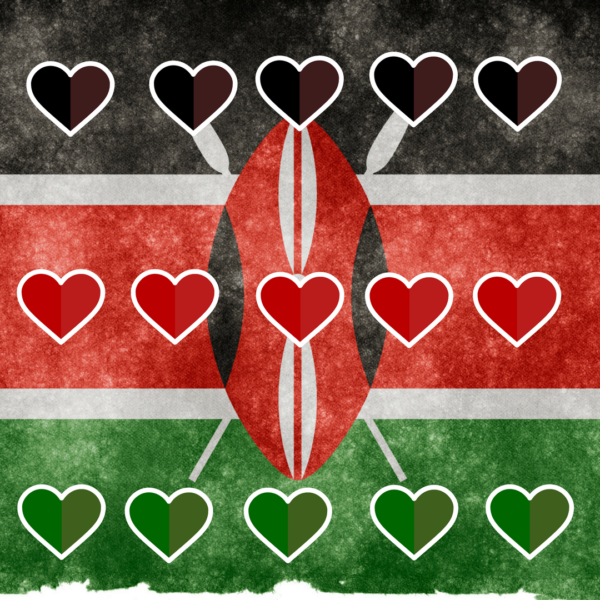
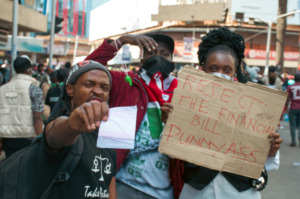
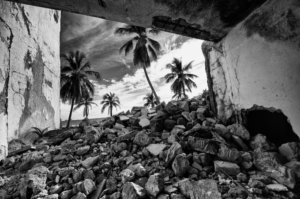
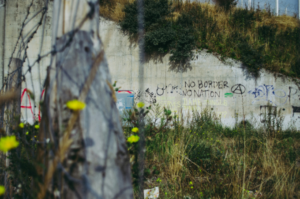
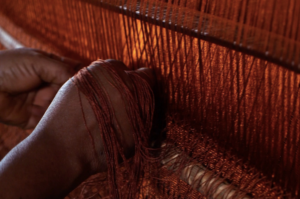
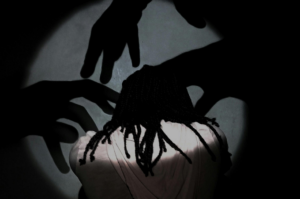
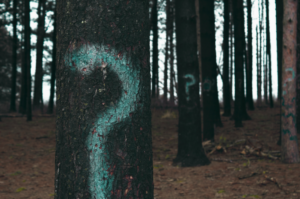

Gathoni wa Wairura October 19, 2016 11:47
Dear Stephanie Wanga, What a beautifully written story. I really enjoyed reading it and following the history of our country as well. Keep telling stories, you're clearly talented. Kind regards, Gathoni